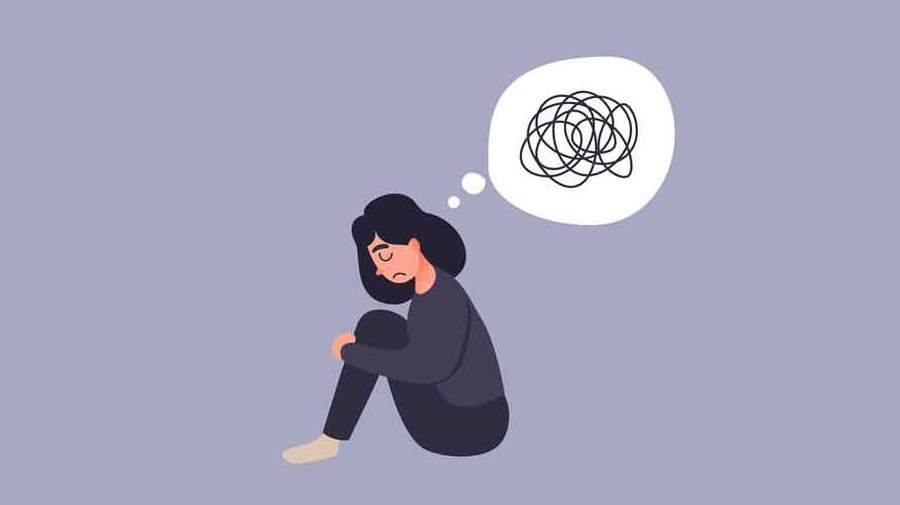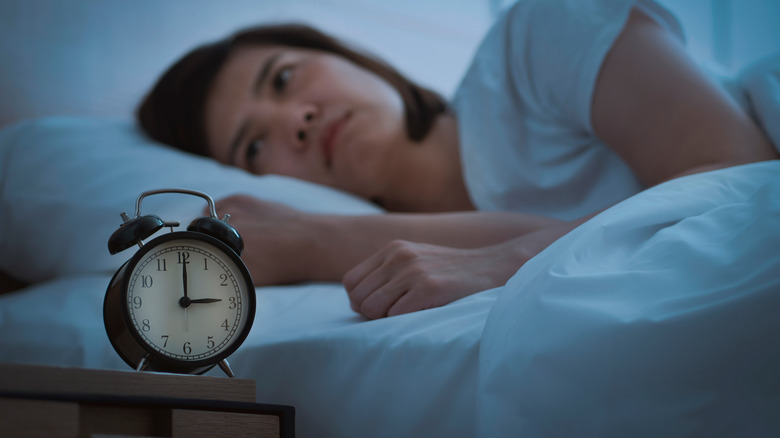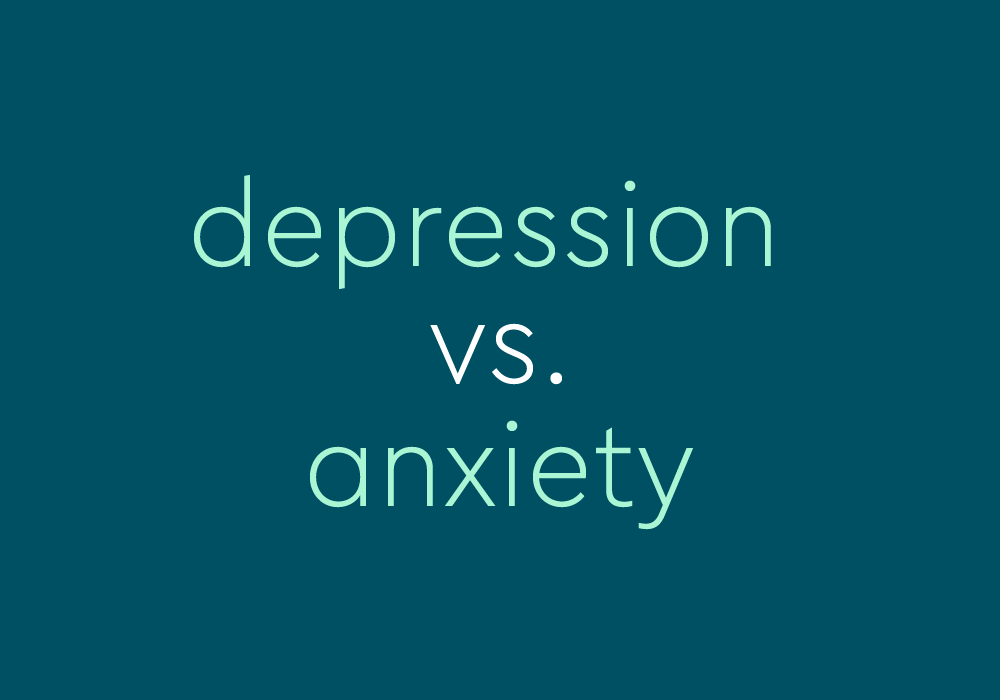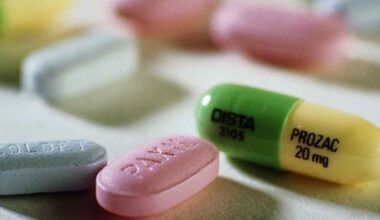To many people, the term depression comes to mind whenever they are feeling greatly sad. While sadness is a significant sign of depression, that is not all there is to it. Perhaps if depression only meant being sad, people would not be greatly concerned about it. Unfortunately for us, depression goes beyond just being occasionally sad to much more. What is depression? Can you treat depression? What are the signs and symptoms of depression you shouldn’t ignore? How can you find help if you are depressed? If these questions have plagued your mind, then you should definitely read this.
KEY TAKEAWAYS
- Depression is a chronic mood disorder that causes a persistent feeling of sadness, hopelessness, lack of interest in things, and suicidal tendencies in people.
- Lack of interest in things, sleeping disorder, anxiety, fatigue, and headache can be signs of depression.
- While depression does not have a known cure, the chronic illness can be treated and properly managed. Depression is treated using: Psychotherapy and Medication.
- If you have had depressive symptoms for over two weeks, then you may be depressed. You must seek help as soon as possible. Depression requires professional attention, thus refer to a specialist.
WHAT IS DEPRESSION?

Depression is a chronic mood disorder that causes a persistent feeling of sadness, hopelessness, lack of interest in things, and suicidal tendencies in people. Depression goes beyond occasional sadness and loneliness. It’s a mental illness that tremendously affects the many spheres of your life ranging from your work life to personal interests, sex life, appetite, sleep, thoughts, etc.
Depression poses a great deal of short-term and long-term consequences if left untreated hence proper knowledge of what the signs and symptoms of depression appear like will aid individuals know when and how to seek help in case of likely situations.
SIGNS AND SYMPTOMS OF DEPRESSION YOU SHOULDN’T IGNORE

Recognizing the signs and symptoms of depression is not as simple as it may sound. It certainly isn’t as straightforward as knowing you have the flu or a cough. Depression, like many other mental health issues, often does not come with blatant signs and symptoms and this could be very tricky. But depression is a serious health issue and we should not leave it to posterity to make a declaration to us when our loved ones or we are depressed. It’s therefore highly important that we have a backhand knowledge of signs of depression that shouldn’t be ignored.
Yearly, thousands of people are diagnosed with major depression, and thousands are left untreated leading to more severe cases like suicide mostly because of the inability of these people to tell that the symptoms they were experiencing were a result of depression.
It suffices to say that a great percentage of people whose depression is not treated is because they had no idea they were depressed. The signs and symptoms of depression are very often subtle, rearing their ugly head slowly and conspicuously. Let’s check out some of the signs and symptoms of depression that you cannot afford to ignore.
EMOTIONAL SYMPTOMS OF DEPRESSION
- An intense feeling of helplessness and despair: everything seems bleak and fruitless.
- Change in appetite: this is rather a very tricky one. Depression affects people in diverse ways. While some people become particularly gluttony, eating way too much and gaining weight, some others may have a loss of appetite. What is important to note, however, is the change in a person’s eating habits over a period of time.
- Lack of interest in things: when there is a lack of interest and enthusiasm in things that would have otherwise given you pleasure. This can affect every area of your life. Ranging from your hobbies to your work and even your sex life. The ability to enjoy things and derive pleasure from activities you once enjoyed just died.
- Sleeping disorder: just like eating disorders, sleep disorders in depressed persons can have different looks. For some, it manifests as oversleeping while in others, it may be a lack of sleep such as insomnia or waking up too early.
- Anxiety: depression can come with anxiety issues. The person feeling hopeless and helpless
- Lack of concentration: when you are depressed,
PHYSICAL SYMPTOMS OF DEPRESSION
Even though depression is a mental health issue, and most of the symptoms are emotion-based, some symptoms of depression manifest physically. Symptoms such as
- Headache
- Back pain
- Fatigues
- Muscle cramp
Depression Self-Assessment Checklist
Reflect on your recent experiences and check off any of the following signs or symptoms that resonate with you:
- I have felt an intense feeling of hopelessness for more than two weeks.
- I have noticed a significant change in my appetite (eating much more or much less than usual).
- I no longer enjoy activities or hobbies I once loved.
- I struggle to fall asleep or find myself sleeping much more than usual.
- I experience frequent anxiety or constant worry.
- I have difficulty concentrating on work or tasks that used to come easily.
- I feel persistently fatigued or lack energy, even after rest.
- I have experienced physical symptoms like headaches, back pain, or muscle cramps without a clear cause.
If you checked several of these boxes, it’s important to reach out to a healthcare provider for further assessment and support.
CAUSES OF DEPRESSION

Very often, the cause of depression has been linked to brain chemistry and the imbalance of chemicals in the brain that regulate moods and emotions. While this is not entirely wrong, it’s equally not totally right. This is because a lot of other factors play into causing depression and chemical imbalance of the brain could be just a result of depression and not a cause.
WHAT ARE THE POSSIBLE FACTORS OF DEPRESSION?
- Traumatic experiences: usually when we experience traumatic events, like the death of a loved one, work-related stress, and abusive relationships, there is a greater chance of depression trigger.
- Genetic disposition: depression can be a result of genetic disposition. If you have a family member who has suffered from depression, you stand a higher risk of having depression. Although having depression in your genes doesn’t mean you must be depressed at some point in your life. It only means that with other life-challenging factors that may trigger depression, genetic disposition only increases the likeliness.
- Brain chemistry: because it is not feasible to attest to exactly when someone gets depressed, nobody knows if this factor is really a cause of depression or a result of depression. However, research shows that there are usually abnormalities in brain chemistry when one is depressed. This is a result of the secretion of certain neurotransmitters that may affect mood and emotions.
- Personality: people with large amygdalas tend to possess a melancholic personality. This personality trait can make them easily overwhelmed by situations and therefore easily depressed
- Substance use and misuse: this is tricky because substance use can be a result of depression and can equally cause depression.
TREATMENT OF DEPRESSION
While depression does not have a known cure, the chronic illness can be treated and properly managed. A good percentage of people with depression who sought treatment respond to treatment; however, there are some who do not respond to treatment. This might be a result of the type of depression one has.
Depression is treated using:
- Psychotherapy
- Medication
Psychotherapy
This is the use of Cognitive Behavioral Therapy to treat depression. Cognitive Behavioral Therapy, simply known as CBT is done to help people understand their emotions and thought processes. Its major aim is to help change people’s negative thoughts by helping them apply the behaviors or skills they have learned to their daily lives.
During CBT, your therapist is most likely going to allow you to analyze your thoughts and emotions, picking out the irrational and unhelpful thoughts and aiding you to discard them.
Cognitive Behavioral Therapy is an effective treatment for so many mental health disorders and has proven to work over time
Medication
There are medications that healthcare providers may prescribe to help treat or manage depression. These medications are called antidepressants.
Antidepressants should only be taken on prescription. This is because there are various antidepressant drugs and what works for one person may not work for another. These drugs are divided into different classes. Different classes of antidepressants induce the release of different neurotransmitters in the brain to achieve a common goal.
Also, one may need to take two or more combinations of these antidepressants for effective treatment. Antidepressants may take time to work. Ranging from months to even years
CLASSES OF ANTIDEPRESSANTS
Selective Serotonin Reuptake Inhibitors(SSRIs):
This class of antidepressants contains drugs that help increase the secretion of serotonin in the brain. Serotonin is a chemical found in the brain that is believed to enhance a good mood.
The drugs found in this class include paroxetine, Prozac, and citalopram.
Tricyclic antidepressants:
Tricyclic antidepressant is another class of antidepressant used to treat depression. They are not as modern as SSRIs and have more side effects, however, they are more effective for some people especially people with severe or major depression. Tricyclic antidepressants work in similar ways as SSRIs. They stop the reabsorption of the serotonin and norepinephrine neurotransmitters, thereby aiding their increment. The increment of these neurotransmitters is said to affect mood positively. Drugs found in this category are Amitriptyline, Doxepin Tofranil, Trimipramine, etc.
DEPRESSION VS. ANXIETY

Just like depression, anxiety is a chronic mood disorder. It is characterized by an overwhelming feeling of worry, restlessness, and fear. The significant difference between anxiety and depression is in their symptoms. While depression causes intense feelings of sadness and hopelessness, loss of interest and concentration, sleep, and an eating disorder, anxiety, on the other hand, causes intense feelings of fear, worry, agitation, and restlessness.
These two conditions, however, often overlap in occurrence. This means that a great percentage of people who have depression may most likely suffer anxiety at the same time and vice-versa. It is believed that anxiety triggers depression.
Furthermore, some symptoms of anxiety and depression sometimes overlap. Symptoms such as sleep disorder, eating disorder, and loss of concentration.
WHAT ARE THE EFFECTS OF DEPRESSION?
Depression can result in very severe health issues if left untreated. In most cases, some symptoms of depression are the effects too.
Therefore, depression can be said to cause sleep disorders, eating disorders, lack of concentration, lack of interest in activities that would have otherwise given you pleasure, fatigue, headache, back pain, and muscle cramps.
Beyond that, depression also causes other major health issues such as:
- Obesity from overeating
- Alzheimer’s in older adults as a result of lack of sleep
- Epilepsy
- High blood pressure
- Diabetes
- Lack of pleasure during sex
- Malnutrition
- Heart and kidney failure
- Short-term memory
- Suicide
OTHER CONDITIONS THAT CAN MIMIC SYMPTOMS OF DEPRESSION
You may have read about depression and thought “Oh! I am depressed”. Well, here is the news, you may not be depressed. Many mental health conditions have similar symptoms to depression and may look like depression but it isn’t.
Here are other conditions that may look like depression but are not:
Anemia:
Anemia is a condition caused by a lack of red blood cells in the body. When the body lacks red blood cells, it will cause a shortage of oxygen in the brain and this may lead to symptoms similar to those of depression. Most anemic patients may suffer from a lack of concentration, eating and sleep disorders, fatigue, headache, muscle cramps, etc.
Although, the disparity between the two conditions is that anemia is accompanied by dizziness, shortness of breath, and cold,
Anxiety
Anxiety and depression often occur simultaneously but unlike depression, anxiety causes a persistent feeling of fear and worry agitation, and restlessness. It also has overlapping symptoms with depression like lack of concentration, sleep disorder, and change in appetite, and could also cause fatigue and irritability in people.
Many a time, anxiety triggers depression if left untreated.
Attention deficit hyperactivity disorder
ADHD is a condition that affects people from the early childhood stage. This condition causes children to be restless, impulsive, and generally, inattentive. Most people diagnosed with ADHD as children grow into adults with this condition.
As adults, ADHD can prove difficult for its patients. This is because there is a lot to focus on work, school, family, etc. This will oftentimes, kick ADHD symptoms into overdrive and subsequently, cause depressive symptoms in its victims. Depressive symptoms caused by ADHD condition are a type of situational depression. In other words, treatment of ADHD condition will take care of the depression.
Diabetes
Diabetes is a chronic disease that results from the body’s inability to produce or use produced insulin to regulate the sugar level in the blood. People suffering from diabetes are likely to have the following symptoms: irritability, tiredness, weight loss, and ‘diabetes distress, which refers to worry and stress related to coping with diabetes.
These symptoms can make diabetes patients feel depressed when they are not. If you are experiencing these symptoms, look out for other significant symptoms of diabetes as well such as frequent urination, thirst, and excessive hunger.
Hypothyroidism:
This is a condition that leads to low metabolism in people. It is caused by the inability of the thyroid gland to produce enough hormones in the body. The result of this is depressive symptoms caused by low metabolism. Hypothyroidism victims experience symptoms like loss of appetite, weight gain, fatigue, irritability, muscle cramps, difficulty concentrating, and low mood. These symptoms are alarmingly similar to those of depression and one could confuse them both.
Hypothyroidism is however accompanied by other symptoms such as hair loss, flaking skin, and cold.
Vitamin D deficiency:
There might be a direct link between vitamin D deficiency and depression in adults. Vitamin D deficiency results from a lack of exposure to sunlight and a deficiency in vitamin D supplements. It’s a condition common amongst children and can cause pains in the bones and difficulty walking.
However, in adults, the symptoms can mimic depression causing fatigue, low mood, and muscle and bone pains.
Chronic fatigue syndrome
This condition causes overwhelming fatigue in people. This illness lasts at least 6 months and has no known cause.
It’s impossible to test for chronic fatigue syndrome. Therefore, to know if one has CFS, tests for other conditions similar to it have to be conducted and ruled out. The symptoms of chronic fatigue syndrome are very similar to the symptoms of depression. It can cause; overwhelming fatigue, low mood, difficulty concentrating, sleep disorder, and muscle pains.
Other symptoms not commonly associated with depression include sore throat, joint pain, and tender lymph nodes.
HOW DEPRESSION SYMPTOMS VARY WITH GENDER AND AGE
Depression is not a respecter of gender or age, therefore anybody can be depressed. Children, adults, men, and women.
However, how the signs and symptoms of depression manifest in people with regard to their gender and age differs.
Men
For men, depression may look like anger, aggression, loss of interest in family and work, and irritability. Depressed men also self-loathe and get the overwhelming feeling of hopelessness but are less likely to admit these. Some of them start to overwork as a tactic to distract themselves. Very often, they may resort to substance abuse.
Women
Depression is more prevalent amongst women for a number of reasons ranging from hormonal changes which are more common to women as a result of menstruation, pregnancy, or menopause to the likelihood of reporting a depression case. More women report a case of depression than men and they are more likely to report a feeling of self-loathing and a feeling of helplessness. They may equally have symptoms of change in appetite, weight gain, and sleep disorder.
Teens
For teens, depression would possibly be expressed in the following ways: lack of concentration, anger, social anxiety/isolation, irritability, poor academic work, outbursts, self-harm, change in appetite, and suicidal attempts.
Older adults
Depression in older adults is usually left undiagnosed because a lot of people dismiss the depressive symptoms in older adults as effects of aging. Unfortunately, older adults make up a great percentage of depressed people worldwide. When people age, they often interact less with peers and may become lonely. This would most times, lead to depression.
Furthermore, older adults express more physical depressive symptoms than emotional ones. Symptoms such as fatigue, pains, muscle cramps, headache, and memory loss are common among depressed older adults.
HOW TO GET HELP FOR DEPRESSION

If you have had depressive symptoms for over two weeks, then you may be depressed. It’s important that you seek help as soon as possible. Remember that depression is a treatable mental illness and should not be something to be ashamed of. You could go to your healthcare provider for proper diagnosis and treatment. You could equally contact a psychotherapist near you for treatment.
If you are unsure about how to go about these, check out these mental health specialists
- American Psychological Association
- American Psychiatric Association
- National Institute Of Mental Health
- National Alliance Of Mental Illness Helpline
If you have a friend or loved one who is depressed, do not try to talk them out of depression. Depression requires professional attention, thus refer to a specialist. You can be encouraging, and available without being suffocating. Do not judge them and make them feel uncared for to not worsen their condition. Help them keep up with medication.
Does Depression Go Away?
With treatment, you should feel better within a few weeks, but it can take longer. Stay in touch with your healthcare provider and let them know if you’re not feeling better. Without treatment, symptoms can persist for weeks, months, or even years.
What Things Worsen Depression?
6 Common Depression Traps to Avoid
- Social Withdrawal
- Rumination
- Self-Medicating With Alcohol
- Skipping Exercise
- Seeking Sugar Highs
- Doomscrolling
Can Depression Make You Angry?
People suffering from depression often display overt or suppressed anger. Those with anger tendencies experience exaggerated problems throughout the symptomatic period of depression. Pharmacological management aids in the treatment of depressive and anxiety symptoms but rarely addresses anger symptoms.
Related Articles
- 17 Signs of Parental Alienation 2024: All You Should Know
- 17+ Effective Journal Prompts for Mental Health (+ free PDF)
- 20 Best Mental Health Podcasts for Finding Support 2024
- These Are 23 Best Jobs for People with ADHD
- 150+ Positive Affirmations for Men 2024 (Updated)






